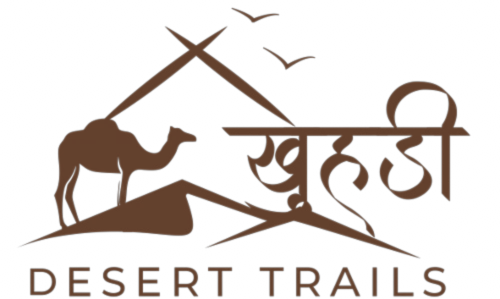Rajasthan, the “Land of Kings,” is famous for its royal forts, vibrant festivals, and vast stretches of the Thar Desert. Among its many attractions, camel safaris stand out as a truly unique way to explore the desert landscape while connecting with centuries-old traditions. More than just a tourist activity, camel safaris hold a deep-rooted significance in Rajasthan’s cultural identity and history.
The Historical Roots of Desert Travel
Known as the “Ship of the Desert”, camels have played an essential role in Rajasthan for centuries. Long before modern transport, camel caravans were the lifeline of desert communities. They carried goods, water, and travelers across the harsh terrain of the Thar Desert, linking Rajasthan to trade routes that stretched into Central Asia and beyond.
In ancient times, traders and nomads depended on camels to survive the desert’s extreme climate. Royals, too, traveled in grand caravans, with camels transporting valuables and supplies. These historical journeys eventually inspired what we know today as the camel safari experience.
Camels in Rajasthan’s Cultural Fabric
Camels are more than functional animals in Rajasthan—they are cultural icons. Their importance is visible in folklore, songs, handicrafts, and even religious festivals.
One of the most celebrated events is the Pushkar Camel Fair, where thousands of camels gather for trading, races, and cultural showcases. Similarly, the Bikaner Camel Festival highlights camel dances, decorated processions, and competitions, all honoring the animal’s significance.
In Rajasthani art and storytelling, camels symbolize endurance, loyalty, and adaptability, traits admired in desert life. Owning a camel was once considered a sign of prestige, and even today, camels are woven into the identity of Rajasthan’s desert communities.
The Evolution of Camel Safaris into Tourism
What began as a survival necessity has transformed into one of Rajasthan’s most sought-after tourism experiences. Camel safaris became popular in the 20th century as travelers sought authentic ways to explore the desert. Riding across sand dunes, camping under starlit skies, and enjoying traditional folk performances quickly became highlights of Rajasthan tourism.
Today, camel safaris are an essential part of the state’s hospitality sector. They not only offer tourists a memorable adventure but also support local economies, providing livelihoods for camel owners, guides, artisans, and performers.
Popular Camel Safari Destinations in Rajasthan
If you are planning to experience a camel safari, Rajasthan offers several must-visit destinations:
-
Jaisalmer – Known as the “Golden City,” Jaisalmer is the most popular spot for desert safaris. The Sam Sand Dunes offer breathtaking sunset views and cultural shows.
-
Bikaner – Famous for its camel breeding farms and the Camel Festival, Bikaner is perfect for an authentic safari experience.
-
Pushkar – A blend of spirituality and adventure, Pushkar offers desert rides alongside visits to temples and ghats.
-
Jodhpur – Often combined with visits to the majestic Mehrangarh Fort, safaris here provide a mix of desert exploration and cultural immersion.
These destinations not only showcase the desert’s beauty but also provide opportunities to engage with local traditions, from folk dances to Rajasthani cuisine served at desert camps.
What to Expect
A typical camel safari is more than just a ride—it’s a journey into Rajasthan’s soul. Travelers ride camels through sandy stretches, villages, and dunes. Many safaris include overnight stays in desert camps, complete with traditional music, Kalbeliya dance performances, and authentic meals cooked over open fires.
Visitors often describe it as a blend of adventure, culture, and tranquility, offering a chance to disconnect from modern life and reconnect with nature.
Sustainability and Responsible Tourism
As camel safaris have grown in popularity, concerns about animal welfare and sustainability have emerged. Responsible tourism practices are now gaining importance, ensuring that camels are well cared for and not overworked.
Several local organizations promote ethical safari experiences, focusing on camel health, conservation of desert ecosystems, and community empowerment. Tourists are encouraged to choose operators who follow these practices, making safaris both enjoyable and sustainable.
Why Camel Safaris Matter Today
Camel safaris represent more than a desert adventure. They are a living reminder of Rajasthan’s history, a celebration of its culture, and a vital link to its rural communities. For travelers, they provide an opportunity to step back in time, experiencing life much as it was centuries ago, yet in a way that benefits today’s local economies.
Conclusion
The camel safari in Rajasthan is not just a tourist attraction; it’s an experience that weaves together history, culture, and adventure. From the ancient trade caravans of the Thar Desert to the vibrant Pushkar Camel Fair, camels continue to shape the region’s identity.
For anyone exploring Rajasthan, a camel safari is a must-do—whether in Jaisalmer’s golden dunes, Bikaner’s cultural heart, or the spiritual town of Pushkar. By embracing responsible tourism, these safaris will continue to keep Rajasthan’s heritage alive while supporting local livelihoods.
Planning your trip? Pair your camel safari with visits to Rajasthan’s forts, palaces, and cultural festivals for a truly unforgettable journey through India’s desert state.
Experience the Desert with Desert Trails
If you’re looking for an authentic, responsible, and memorable camel safari, Desert Trails offers the perfect experience. With guided safaris, comfortable desert camps, and curated cultural performances, Desert Trails ensures your journey through Rajasthan’s golden sands is both enriching and ethical.
Book your adventure with Desert Trails and discover Rajasthan’s deserts the way they were meant to be experienced.






